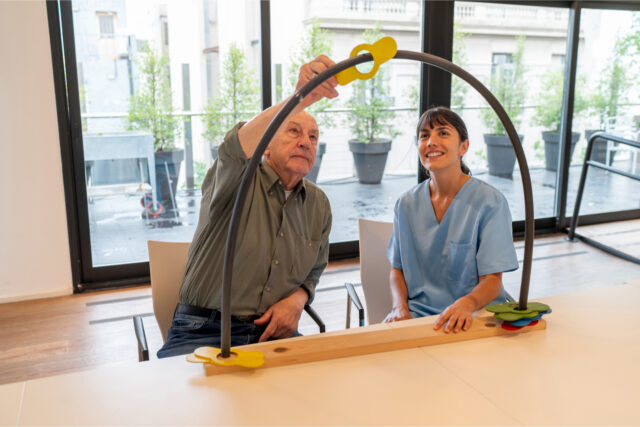Our Quality Assurance program
Quality matters. The Quality Assurance (QA) program helps occupational therapists reflect on their professional roles and responsibilities, and identify new areas of learning. Registrants participate in continuous quality improvement activities that reflect evolving practice and the expectations for safe, effective and ethical services.
How the QA program works
We provide occupational therapists with continuous quality improvement activities that reflect evolving practice and client service expectations.
These activities and professional learnings include:
- Self-reflection
- Online education
- Competency assessment
Occupational therapists have designed our QA requirements based on our core resources. These include the Competencies for Occupational Therapists in Canada, the Code of Ethics, and Standards of Practice. We also use insights from research to shape the requirements. The goal is to help identify strengths and areas for development for occupational therapists.
The Regulated Health Professions Act, 1991 requires the College to have a Quality Assurance program in order to protect the public. All occupational therapists must participate.
You can access your QA through the COTO Portal.
QA program components
There are two main parts to the QA Program: annual requirements and competency assessment.

Annual requirements
All occupational therapists complete two annual activities:
- Annual Learning Plan
- Annual eLearning Module
Competency Assessment
In the interest of public protection, Colleges are required to assess their registrants. The competency assessment supports growth and professional development. The assessment identifies both learning needs and areas of strength so occupational therapists can continue to apply the Competencies for Occupational Therapists in Canada and the Standards of Practice in their daily work.
Every year, between 150-200 occupational therapists are selected to take part in the competency assessment.
eLearning Archive
Previously known as Prescribed Regulatory Education Program (PREP) modules, the eLearning Module promotes continuous learning and the growth of knowledge, skills, and judgment. Access previous versions below.
Our approach to improvement and assessment
The approach to Quality Assurance is just as important as its processes and activities. The QA program uses seven principles with the goal of advancing occupational therapy practices to ensure competent, safe, effective, and accountable practices. These principles align with COTO’s Strategic Priorities.
QA principles
Promote professional growth and continuing competence

Quality Assurance policies
The activities of the College’s Quality Assurance program are directed by the Quality Assurance Program policy set out by the Quality Assurance Committee. The Regulated Health Professions Act, 1991 requires the College to have a Quality Assurance program to support its mandate to protect the public.
Download the policy
PDF: English | French (policy updates coming soon)
If you have questions about this policy please contact:
Lesley Krempulec, OT Reg. (Ont.)
Manager, Quality Assurance Program
lkrempulec@coto.org
Relevant resources
Contact us for support
Get in touch with us with any questions or comments you may have.





